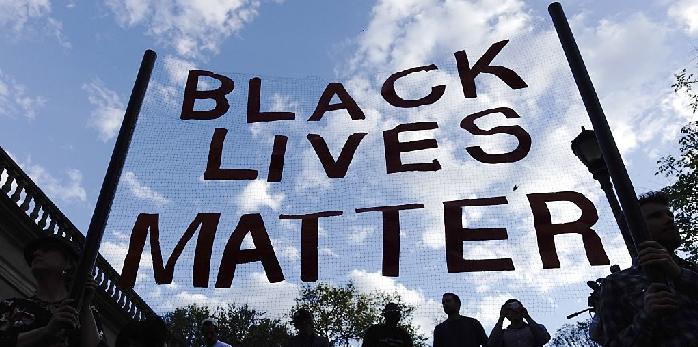*Black history in the United States is a varied and rich chronicle of enslavement and liberty, segregation and accomplishments, oppression and progress.
From the racist legacy of slavery during the Civil War to the spurring movements of resistance, through it all, Black artists, writers, and leaders have emerged to shape the identity and character of the nation.
Every February, Black History Month is observed throughout the US to commemorate the achievements that African Americans have accomplished, both for themselves and their country—to remind ourselves that Black History is American History.
In the midst of yet another Black History Month, let’s honor our past by remembering the heroes who paved the way for the success of the Black community and showed us the meaning of what it’s like to truly embrace your identity.

The Start of Racial Transformation: Negro History Week
Long before there was Black History Month, Carter G. Woodson created Negro History Week in 1926. The son of formerly enslaved people, Woodson was well aware of the hardships faced by African Americans and seemed filled with purpose from a young age.
His parents instilled in him the value of education, which inspired his future work. At 19, having taught himself arithmetic and English fundamentals, Woodson entered high school, where he completed the four-year curriculum in two years.
He went on to earn a degree in literature from Berea College and later got his doctorate from Harvard University. Throughout the years, his commitment to education only grew.
As a school supervisor, principal, and teacher, Woodson noticed the absence of Black History in the curriculum. He believed that the black experience was simply too important to be left untouched, and in an attempt to change that, he established the Association for the Study of Negro Life and Culture in 1916.
The goal of the organization was to promote the accessibility of black history to a broader audience. “A race with no history stands in danger of being exterminated.”
Woodson firmly believed in the statement and eventually created Negro History Week in 1926 to stimulate interest in the topic. This initiative served two purposes. One was to increase the visibility of black history and life through books and newspapers for the nation to notice the black community. The other goal was to prove to the white Americans that Blacks played an instrumental role in America’s creation and, hence, deserved to be treated as equal citizens.
Woodson wholeheartedly believed that Negro History Week would be a vehicle for racial transformation, and he definitely succeeded in his purpose. In 1976, Negro History Week evolved into Black History Month after being formally recognized by then-President Gerald Ford during the United States Bicentennial ceremony.
“The success of ideals envisioned by our Founding Fathers give us the ultimate satisfaction in celebrating Black History Month,” Ford addressed in his speech.
“However, what’s more important than this is that it offers us the opportunity to honor the often-neglected achievements of African Americans in every aspect of endeavor throughout our history.”
Gaining Momentum: The Post-Civil Rights Era
As Black people continued striving for racial equality in America, Martin Luther King quickly became one of the most prominent figures during the American Civil Rights Movement of 1960.
He was an American Baptist minister and social activist who dreamt of a nation free from racism and segregation and adopted a nonviolent resistance policy to achieve this aim.
However, his aspirations were abruptly ended due to his unfortunate assassination on April 4, 1968, at the Lorraine Motel in Memphis, Tennessee, while standing on his room’s balcony.
King’s untimely death caused havoc amongst Black Americans and played a pivotal role in empowering them against the year-long discrimination against them. There was colossal unrest and a series of urban uprisings following King’s passing, calling for justice and equality.
These continued struggles eventually bore fruit as the Fair Housing Act was officially signed on April 11, 1968. It was an extension of the Civil Rights Act of 1964. It aimed to protect individuals from any housing or rental discrimination based on race, religion, or nationality and diminish practices such as Black voter suppression.
Another landmark moment during the post-civil war period was when Shirley Chisholm, a Black woman, was elected to the US House of Representatives on November 5, 1968.
Chisholm also became the first Black person to run for President in 1972 on a Democratic ticket and the first Black woman to win delegates during a presidential election by a major party.
Moving Forward: Aspirations and Achievements
Time and time again, the Black community has proven that their history is central to American history. Their unmatched resilience, strength, and contributions eventually led to them achieving monumental landmarks such as the celebration of Martin Luther King Jr. as a national holiday (1986), Lee P. Brown appointed as Houston’s first Black police commissioner (1982), and the eventual election of Barack Obama as the 44th President (2008) followed by the appointment of Kamala Harris as the first African vice president in 2021.


Yet again, there seems to be a long way to go from here onwards. In 2013, keeping in mind the brutality inflicted on the Afro-American community by the state, Patrisse Cullors, Opal Tometi, and Alicia Garza founded the Black Lives Matter Network.
The deaths of Eric Garner, Michael Brown, Tamir Rice, and George Floyd, all linked with violence against the Black community by state officials, led to widespread protests in solidarity with the Black Lives Matter movement and served as a constant reminder of the prevalence of white supremacists in the United States of America.
Black History Is American History
Based on a census taken in 2020, there are a total of 46.9 million Black people residing in the US. Keeping the high proportion of the African American community and their long history of struggles in mind, it is significant that we celebrate the month of Black history by not only looking up towards a better, racially equal nation but also remembering and honoring the sacrifices of those before us.
After all, black folks have proven they are a force to be reckoned with and that it must never be forgotten that Black History is American History.
MORE NEWS ON EURWEB: EUR Video News: Black History Facts (Shotgun Houses/Porches) You Probably Didn’t Learn in School | WATCH
We Publish News 24/7. Don’t Miss A Story. Click HERE to SUBSCRIBE to Our Newsletter Now!





